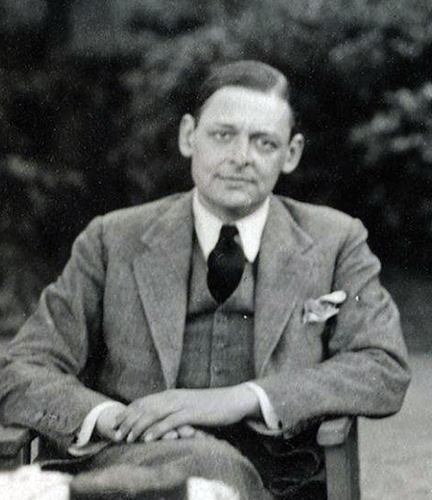Why do people read detective stories? Edmund Wilson posed this question in a 1944 New Yorker essay. He went on to say that since Sherlock Holmes there hadn’t really been anything worthwhile published in that genre. He had nothing nice to say about Agatha Christie and his comment on Dashiell Hammett was this: “‘The Maltese Falcon’ … seems not much above those newspaper picture strips in which you follow from day to day the ups and downs of a strong-jawed hero and a hardboiled but beautiful adventuress.”

In his 1927 essay on Wilkie Collins and Dickens, Eliot focused on melodrama as the key factor. In his words, “melodrama is perennial and … the craving for it is perennial and must be satisfied. If we can’t get this satisfaction out of what publishers present as “literature,” then we will read—with less and less pretense of concealment—what we call “thrillers.” He bemoans the division of literature into “‘high brow,’ ’thrillers’ and ‘detective fiction,’” because in the golden age melodramatic fiction, the “best novels were thrilling.”
Melodrama, of course, has a bad rep. I think of Snidely Whiplash tying Nell Fenwick to the railroad tracks. Indeed, the stock characters of the Victorian melodrama, “the hero, the villain, the heroine, an aged parent, a sidekick and a servant of the aged parent engaged in a sensational plot featuring themes of love and murder,” fit that notion perfectly. But that’s a caricature of melodrama.
The term originated in France combining the Greek melos (music) and the French drama (drama). The 19th century was the high point of melodrama with its incidental music and operettas. The role of music was meant to heighten the emotional impact of the words. This is the sense of melodrama employed by Eliot. To him, novels should be interesting beyond the small group of people who “enjoy reading novels.” Novels ought to excite the reader and for that purpose, melodrama has to be re-examined periodically.
Having watched author Lee Child during the process of writing one of his thrillers, Andy Martin, author of Reacher Said Nothing: Lee Child and the Making of ‘Make Me,’ calls this the difference between jouïssance and plaisir. The thrillers written by Child are a mix of intense bliss and pain, are jouïssance. Child himself said, “I can’t afford to let the reader off the hook. It has to be intense all the way through. If the reader ever says, “Yawn, I’m bored”, I’ve failed.” Sounds like classic melodrama to me (except for the music part—what music would Reacher enjoy?).
